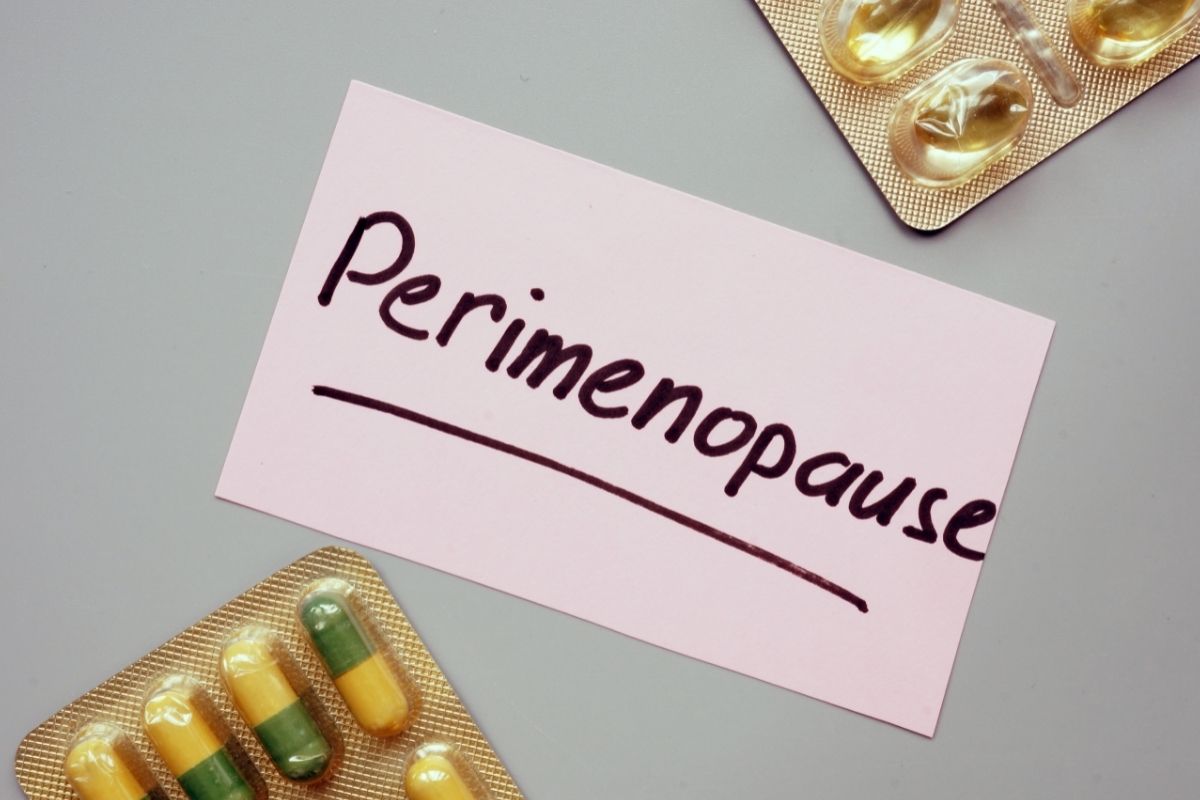Menopause is a natural part of aging. Some women experience menopause before other women because of genetics, but experience menopause at a similar time in life. Hormone levels change a lot during menopause causing some problems such as an increase in food allergies. Why is this? Let’s find out.
Perimenopause And Menopause Symptoms
Menopause affects your whole body and causes many different problems. For example, there are physical symptoms like hot flashes, insomnia, mood swings, and heart palpitations. In addition, there are also mental health issues like depression, anxiety, irritability, memory loss, and sleep disturbances. Fun, right?
But wait, there’s more… Many women experience dryness and vaginal discomfort. Some women even experience urinary incontinence. These symptoms are caused by hormonal imbalances.
And let’s not forget the gut. It doesn’t get out unscathed. Hormonal changes in the body can make your digestive system fail to function poorly. This can be due to decreased levels of estrogen and progesterone. Because of these hormonal fluctuations, women can develop food allergies. Foods that can worsen these symptoms include dairy products, soy, wheat, caffeine, alcohol, and processed meats. Let’s look at these in a bit more detail.
Common Food Allergies

Milk is the most common food intolerance developed during perimenopause.
Women who suffer from lactose intolerance do not produce enough lactase, an enzyme that breaks down lactose into glucose and galactose. This causes symptoms including bloating, diarrhea and stomach cramps.Food additives such as nitrates, monosodium glutamate and artificial colors and flavors can also cause problems.
Gluten is another common food intolerance. Those who suffer from gluten intolerance often experience similar symptoms to those who suffer from lactose or histamine intolerance.
Caffeine often becomes a problem during early menopause Many women feel better after cutting back on coffee consumption.
Foods high in amines, such as cured meats, cheese, fish sauce and soy sauce, can also be problematic for some people.
Foods containing high amounts of fructose including fruits, honey, corn syrup, and high-fructose corn syrup can affect blood usage levels and cause issues when hormones aren’t settled.
These items are often used as sweeteners in processed foods and drinks. Many women who develop IBS or other digestive problems during perimenopause react negatively to these foods. Some people with ulcerative colitis (a type of inflammatory bowel disease) are sensitive to sulfate preservatives.
How are you able to predict what foods are causing problems during this time in order to avoid them?
Diagnosis
Food intolerances can be difficult to diagnose. Some people may experience food intolerances without knowing it. People who suffer from food intolerances often feel better after eliminating certain foods.
To test for food intolerances, you must follow a strict elimination diet. This means avoiding specific foods for several weeks or months before testing.
Many people think they have food allergies when really they have food intolerances. It’s useful to establish which one you have so you know how to address it.
Allergies create a much more extreme reaction when consumed and can sometimes be a medical emergency. Food intolerances, on the other hand, aren’t dangerous short term but can cause unpleasant symptoms.
A registered dietician can help you decide what foods to eliminate. Once you’ve eliminated foods that upset you from your diet how can you ensure you eat the right food to maintain optimal health during this period of change?
Diet

Menopause is a time of life when women experience many physical and emotional changes. Some of those changes include hot flushes, mood swings, sexual dysfunction, and sleep problems.
Adding soy foods into your diet (assuming you’re not allergic) may be beneficial for easing some of the symptoms associated with menopause as they help reduce hot flash symptoms.
Whole grains include many different types of foods such as oats, brown rice, quinoa, corn, barley, buckwheat, millet, amaranth, teff, sorghum, spelt, rye, and triticale.
These foods contain more than 50% of the daily recommended intake (DRI) of several key nutrients, including iron, zinc, magnesium, manganese, copper, folate, thiamin, riboflavin, niacin, vitamin B6, pantothenic acid, biotin, and choline.
Getting the right nutrients is super important when going through perimenopause and menopause to enable the body to deal with changing hormones and help reduce symptoms.
Dehydration is a common symptom during menopause that causes muscle cramps and fatigue and it’s important to look after your health during this time of change. Drinking plenty of water helps prevent constipation and helps keep regular bowel movements. Try different flavors: add a lemon wedge, a bit of mint, or cucumbers. Always have a full water bottle around and eat water-rich foods including watermelon, strawberries, soup, etc.
Living With Food Intolerances
If you are suffering from food allergies due to perimenopause then you should avoid allergens as much as possible, although this can be challenging.
If you enjoy eating out you should give careful thought before selecting a restaurant and be sure to ask questions about ingredients. You should also be aware of cross-contamination or other problems that might occur when sharing a common kitchen utensil. Be clear with restaurant staff and check if they can prepare your food without any allergens.
Alert family and friends about your allergies. Don’t cheat – you could save yourself some uncomfortable symptoms by ensuring you avoid food that disagrees with you.
Conclusion
Being vigilant about what you eat and avoiding foods that upset you will help make this time of change comfortable and alleviate troublesome symptoms.

